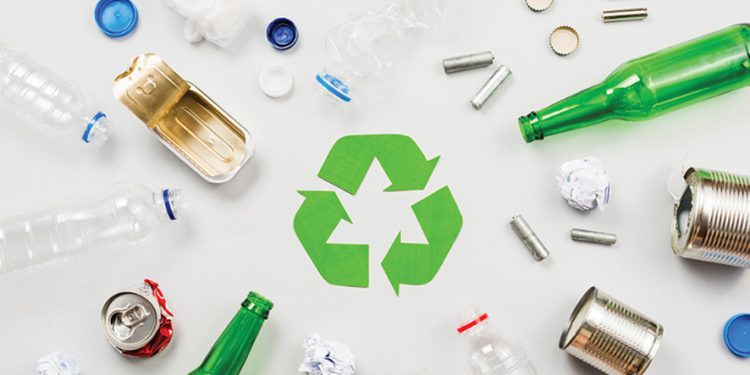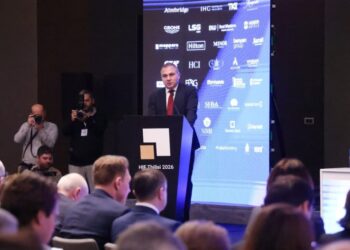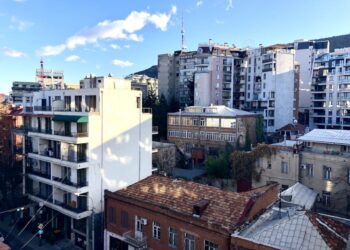As the need for a greener economy intensifies, we sat down with Dr. Zviad Kharebava, PMCG’s Director of Infrastructure and Environment, to get some insights on the valuable work being done to enhance sustainability in Georgia and beyond.
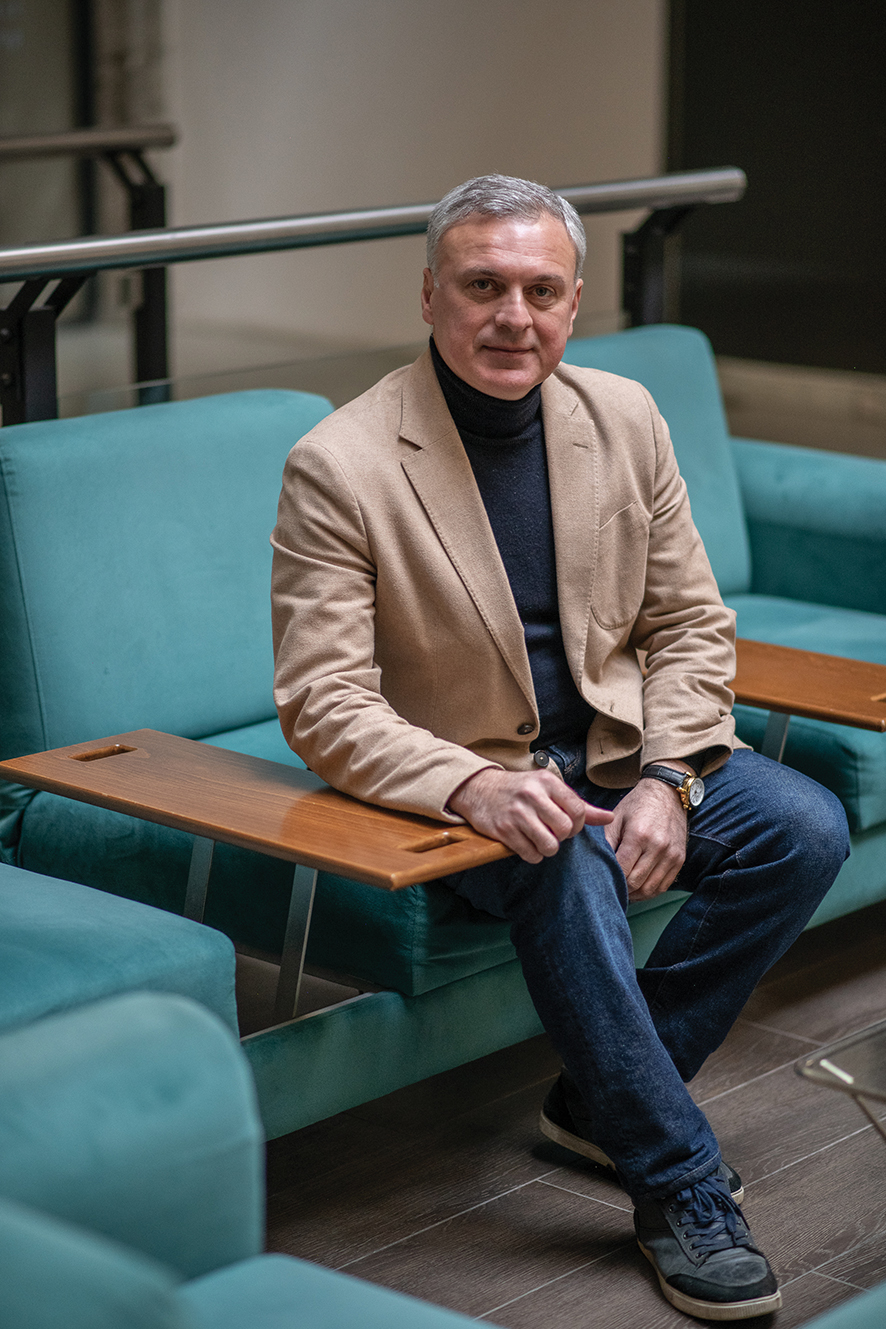
How would you summarize PMCG’s work in the infrastructure and environment sector over the past year?
In 2023, we made notable strides by introducing new approaches in the environment and infrastructure sector, positively impacting several countries, including Moldova and Uzbekistan.
In Moldova, we, as a subcontractor of Tetra Tech, started working on enhancing energy security and fostering sustainable waste management practices under the USAID-funded Moldova Energy Security Activity (MESA). In particular, PMCG has been conducting a waste characterization study there to determine Moldova’s potential for waste-to-energy (WTE) production.
In Uzbekistan, we, as a subcontractor of INTEGRATION International Management Consultants, are working on improving wastewater services for Djizzak city. Specifically, we are working on strengthening the institutional capacity of Djizzak Regional Water Supply and Sewerage Enterprise (DWSE) employees with respect to wastewater management. Ultimately, this initiative will directly enhance wastewater services for local residents, benefiting approximately 180,000 individuals.
Meanwhile, here in Georgia, we continued our devoted efforts to transform the energy sector, enhance socio-economic development in highway-adjacent communities, support the development of the recycling industry, and in other various directions. Providing engineering consulting services across a wide range of areas, including in solid waste management, water supply and sanitation, roads and highways, spatial planning, and tourism, our contributions have been multifaceted. Indeed, they have ranged from policy recommendations for solid waste management and energy sectors, to the introduction of a pilot project concept for the separate collection of paper and cardboard.

How do you perceive the role of the green economy today?
When I think about the green economy, other than the classic definition of it, meaning economic growth where environmental risks are reduced and social inclusiveness is increased, in addition, what comes to mind is the efficient and sustainable use of natural resources.
The 20th century saw massive industrialization worldwide. Electrification, automotive industry, mining, manufacturing, and the production of commercial goods and services all became globally ubiquitous.
On one hand, these developments created wealth, brought technological innovations, and spawned the emergence of a larger middle class, which in turn intensified demand. On the other hand, unfortunately, environmental and climate risks were either given scant consideration or totally ignored. The growing clamor for housing, energy, and transportation were catalysts for environmental deterioration and soaring GHG emissions. At the same time, natural resources such as land, water, forests, and minerals were used inefficiently, and in many cases degraded or even exhausted.
We need to start thinking about the future as the amount of land available decreases and the public demand for new, greener alternatives grows
As a means of recovering from that recent history of carelessness, the green economy is an imperative concept. Simply put, for an economy to be “green,” it must be based on technological and scientific innovation as well as environmentally friendly solutions, with environmental and climate risks given deep consideration. In the latter regard, mitigation measures, decarbonization, enhanced resource efficiency, and energy recovery are all key features.
What obstacles impede the transition toward a green economy?
In my opinion, increasing public awareness and, as a consequence, spurring behavioral change are of the utmost importance in this process. For example, we all know that the biggest environmental problem in Tbilisi is air pollution. This is caused largely by heavy traffic. To counter that, of course, we need to have the right transport policy in place, with streamlined public transport infrastructure including a modern metro and bus fleet. But even when a better transport system materializes, if people still insist on travelling everywhere in their own cars and reject public transportation, improving the air quality will be difficult, if not impossible.
Similar key principles apply to other sectors of the economy such as energy, housing, circular economy and tourism. Ultimately, public consciousness and participation are extremely important, as the public can drive the necessary change and benefit enormously from it.
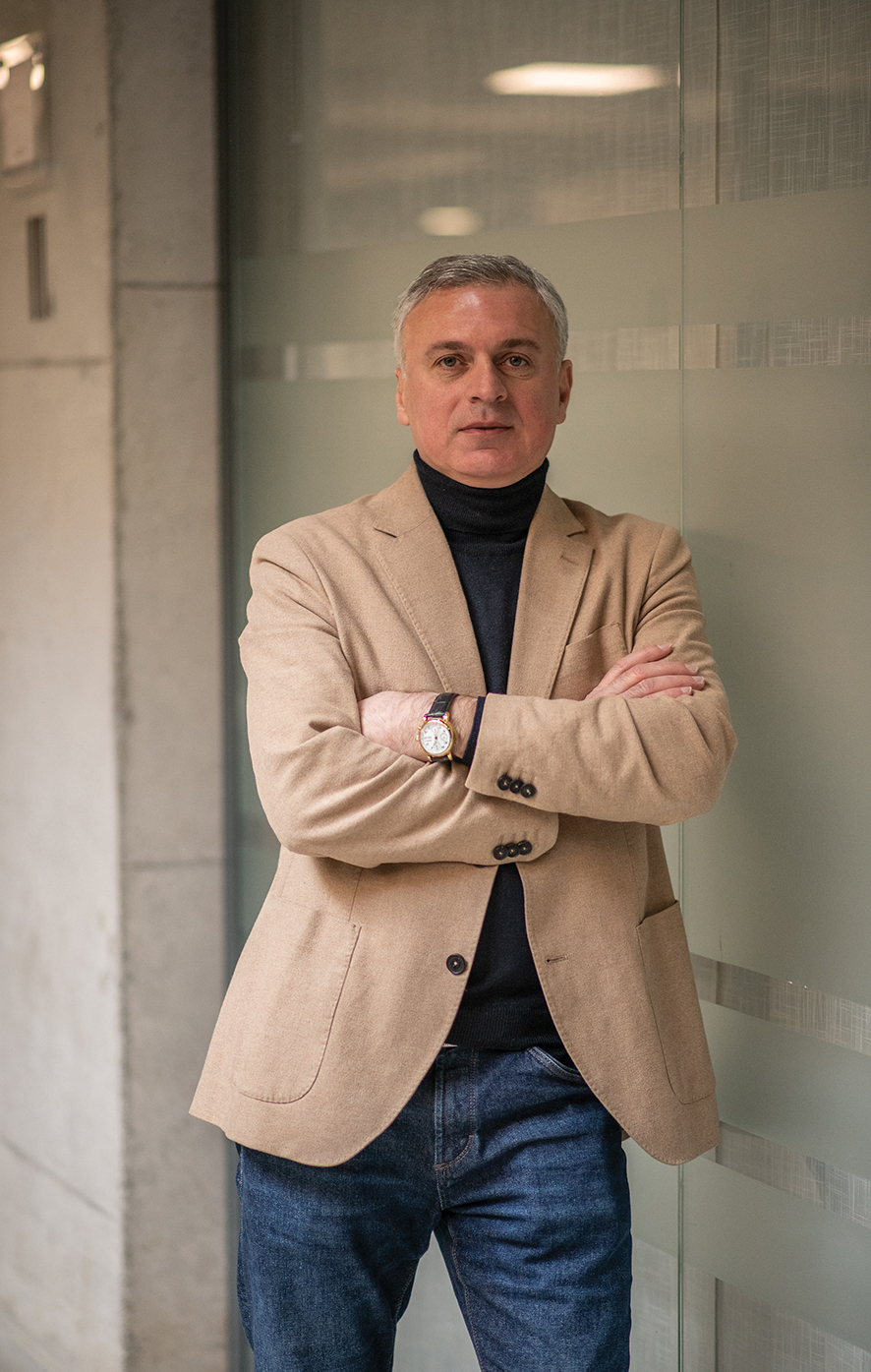
How does PMCG contribute to environmental sustainability and promote greener practices?
We mainly work in the areas of waste, water and sanitation, and energy and transport. As part of our work, in all of our projects, we either conduct an environmental and social impact assessment or perform environmental and social monitoring.
With regard to greening practices, I would emphasize the Integrated Waste Management Program which is funded by German Development Bank KfW. In this initiative, together with our international partner, Fichtner Management Consulting, among other things we developed paper/cardboard recycling facilities for the entire towns of Zugdidi and Telavi. The project is implemented by the Solid Waste Management Company of Georgia.
When Georgia signed the EU association agreement, comprehensive reforms were launched to bring waste management in line with relevant EU directives, and a waste code and waste strategy were elaborated
Elsewhere, together with our Greek partner Paseco, we developed a landfill biogas collection and utilization system in Rustavi. Accordingly, the negative effects of GHG emissions were significantly reduced. The project was financed by the EBRD, and implemented by the Solid Waste Management Company of Georgia.
Another greening project worth highlighting is a study on the development of battery storage in Georgia. That project is financed by the ADB, and its beneficiary is the Georgian State Electrosystem. Among the main green points here is ensuring the integration of renewable energy into the national electricity grid.
What sorts of innovations, circular economy practices, and community engagement do PMCG deliver in waste management?
When Georgia, alongside other countries, signed EU association agreements, comprehensive reforms were launched to bring waste management in line with relevant EU directives. Initially, in Georgia, a waste code and waste strategy were elaborated in which several strategic objectives were defined, including harmonization of legislation with EU requirements, construction of new landfills according to EU standards, the establishment of effective waste collection and transportation systems, waste prevention, reuse, recycling, and recovery, as well as extended producer responsibility (EPR). We are working on all of these aspects, including in the elaboration of a detailed design for the new sanitary landfills. Meanwhile, we are also promoting other types of waste treatment, such as mechanical-biological and thermal (e.g. incineration), and other waste-to-energy (WTE) technologies which are considered more environmentally friendly and can generate electricity and heat.
These methods might be significantly more expensive than landfills, but we need to start thinking about the future as the amount of land available decreases and the public demand for new, greener alternatives grows.
Landfill mining is becoming ever more popular around the world, and it may come to Georgia at some point. Such a practice can recover recyclable materials such as glass, plastics, metals, and aggregates, as well as refuse-derived fuels (RDF). Indeed, recovering RDFs is vital today as a potential alternative energy source. Notably, by using the WTE technologies currently available, it is possible to obtain high value-added fuels from RDF.
The circular economy is another area of massive opportunity. In simple terms, the main principle of the circular economy is to utilize resources, e.g. material stock, as long as possible through reuse, repair, remanufacture, recycle, and energy recovery. As I noted, we are engaged in various initiatives related to recycling and energy recovery. On top of those, through biological processes, such as biological treatment, we can produce natural fertilizers from biodegradable waste, e.g., food and farming waste, cotton, and wood, to enrich/rebuild soils and increase biodiversity, thereby regenerating natural capital.
What strategies and initiatives has PMCG employed to reduce waste generation and promote recycling?
One of our goals is to support the facilitation of recycling programs. The two paper/cardboard recycling projects mentioned above in Zugdidi and Telavi have gone very successfully.
Recycling is not only an important tool to reduce the volume of waste disposed at landfills, but it is also an additional source of revenue generation for municipal waste companies. With that in mind, we are promoting recycling projects in other municipalities by setting a successful example elsewhere.
How does PMCG engage with local communities to raise awareness about responsible waste management and the green economy?
As part of our work, we carry out environmental and social impact assessments for landfills, wastewater treatment plants, and other facilities. This process involves holding public hearings for stakeholders and project-affected communities, where we inform them about the project, the potential environmental effects, and the mitigating measures to be implemented. Most importantly, we get feedback from them on their likes and dislikes, so that we can act accordingly. During the construction phase, project monitoring groups are created comprising local population representatives, who monitor the implementation of the infrastructure works.
This year, PMCG will host the “Green Cities” panel at the ADB’s 57th Annual Meeting, which is being held in Tbilisi
In any project where the environment is somehow affected, we devise stakeholder engagement plans, then hold meetings with the stakeholders. Doing so ensures constant communication between the project team and the local communities, meaning that all important aspects, including their roles in the process, are discussed and addressed. Among the different communication tools used here are the dissemination of leaflets, videos, and social media.
To raise public awareness, it is very important to hold educational campaigns in public schools so that the kids at an early age know about environmental and climate challenges, and about the positive or negative effects of human intervention on nature.
Looking ahead, with industry trends and sustainability in mind, what do you consider the key priorities for the Infrastructure and Environmental Department?
As we look to the future, we remain unwavering in our commitment to supporting the environment, addressing climate change, and promoting green growth. Our primary objective here is to align with global efforts to achieve net-zero emissions by 2050, and we are dedicated to playing a significant role in this crucial initiative.
As part of our commitment to a green and sustainable future, we are excited to announce our participation in the ADB Annual Meeting in Tbilisi on May 2-5. At this major event, we will host a panel discussion on the topic “Green City: Transforming Urban Landscapes for a Sustainable Tomorrow.” Having collaborated on numerous projects with the ADB over the years, we are proud to have been given this important responsibility.
Furthermore, we will focus our efforts more on energy and water resource management. Due to climate change, the availability of fresh and clean water reduces every year, and we must learn to manage water resources more efficiently.
***
The highly experienced and qualified Dr. Kharebava has been at PMCG for over a decade, before which he played a key role in transformative economic reforms as Advisor to the Prime Minister of Georgia on Economic Issues, and also coordinated the Poverty Reduction Program in Georgia at the Ministry of Economic Development.

